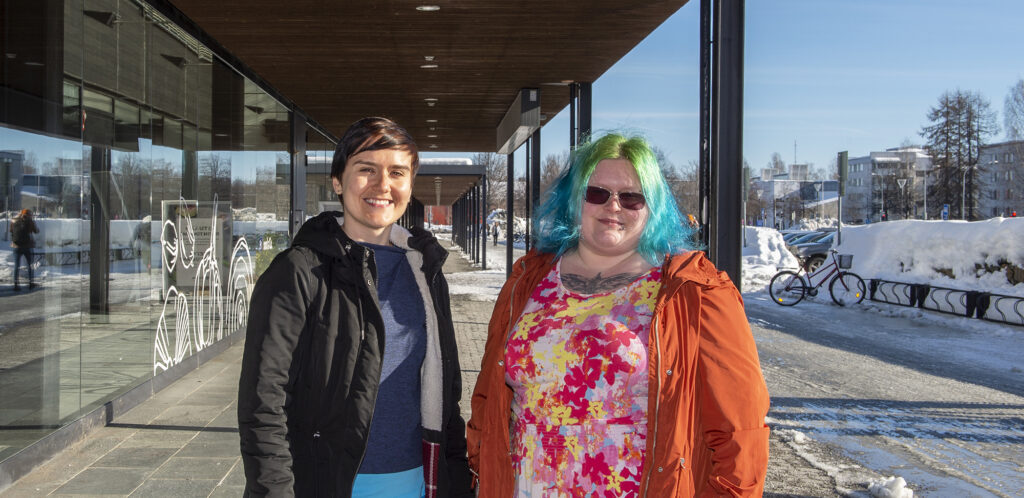
How to translate a thesis abstract or an article from Finnish into English or vice versa? Do I use Finnish or English grammar correctly? Can I express myself properly in my interactions with a foreign culture?
University students, staff, and just about everyone else, sometimes need a helping hand with small translations and occasional language check. As part of the YUFE network of European universities, the University of Eastern Finland has launched a language help desk which deals with the Finnish–English language pair, sharing language-related hacks online.
“We can help students translate texts like articles, dissertation extracts and abstracts. We also offer other small-scale proofreading and translation services and resolve doubts about spelling”, say doctoral researchers Katarzyna Wisniewska and Tuuli Ahonen.
Katarzyna and Tuuli answer questions in YUFE English <> Finnish Language Help Desk which you can find on the webpages of UEF. You can send your question or text to the Help Desk via an electonic form and receive an answer straight to your own email address or it can also be published anonymously on the Help Desk web page.
“The main idea is that we are here for everyone, and anyone can ask us questions, not only university students and staff. We look at the questions sent to us through the forms together and answer them according to our schedules in person or on the website”, Tuuli and Katarzyna explain.
Katarzyna and Tuuli are qualified to answer language questions. Katarzyna, originally from Poland, had worked as a professional translator even before coming to study at the University of Eastern Finland seven years ago. She is now writing a dissertation in Translation Studies, and at the same time helping with civic-engagement activities within the YUFE network.
Tuuli’s doctoral research is focused on English Language and Translation Studies. She is a UEF doctoral student representative in the YUFE Student Board, responsible for help-desks activities. Tuuli has translated various texts for the YUFE Alliance, so the Laguage Help Desk felt like the right place to end up in eventually.
“You can also ask us questions related to international communication. Culture always goes hand in hand with language, so we can also have answers to culture-related issues”, Tuuli suggests.
In addition to the Language Help Desk, the Diversity and Inclusivity Help Desk has been launched in the YUFE network this spring to provide answers to questions concerning diversity, respect for differences, dialogue and inclusivity, as well as involvement and participation in community activities. The Diversity and Inclusivity Help Desk is run by coordinator Senni Pykäläinen and YUFE student Glyd Jun Aranes.
New thematic help desk will possibly be added, as long as there is interest. The free help desks can be found at uef.fi/yufe-helpdesk.
YUFE in a nutshell
YUFE is one of 41 European university federations funded by the European Commission to develop pan-European university models. YUFE is built on the shared vision of ten European research universities and four other partners. The members of the network are united by their dedication to the European world of thought, their desire to build a more competitive, innovative and cohesive Europe, and the goal of finding solutions to today’s burning challenges.
In addition to the University of Eastern Finland, other partner universities include: the University of Maastricht in the Netherlands, the University of Antwerp in Belgium, the University of Bremen in Germany, the University of Madrid III in Spain, the University of Essex in the United Kingdom, the University of Cyprus, the Tor Vergata University of Rome, the University of Rijeka in Croatia, and the Nicolaus Copernicus University in Poland. In addition to the development of higher education, YUFE aims at increasing cooperation between universities and university cities.

